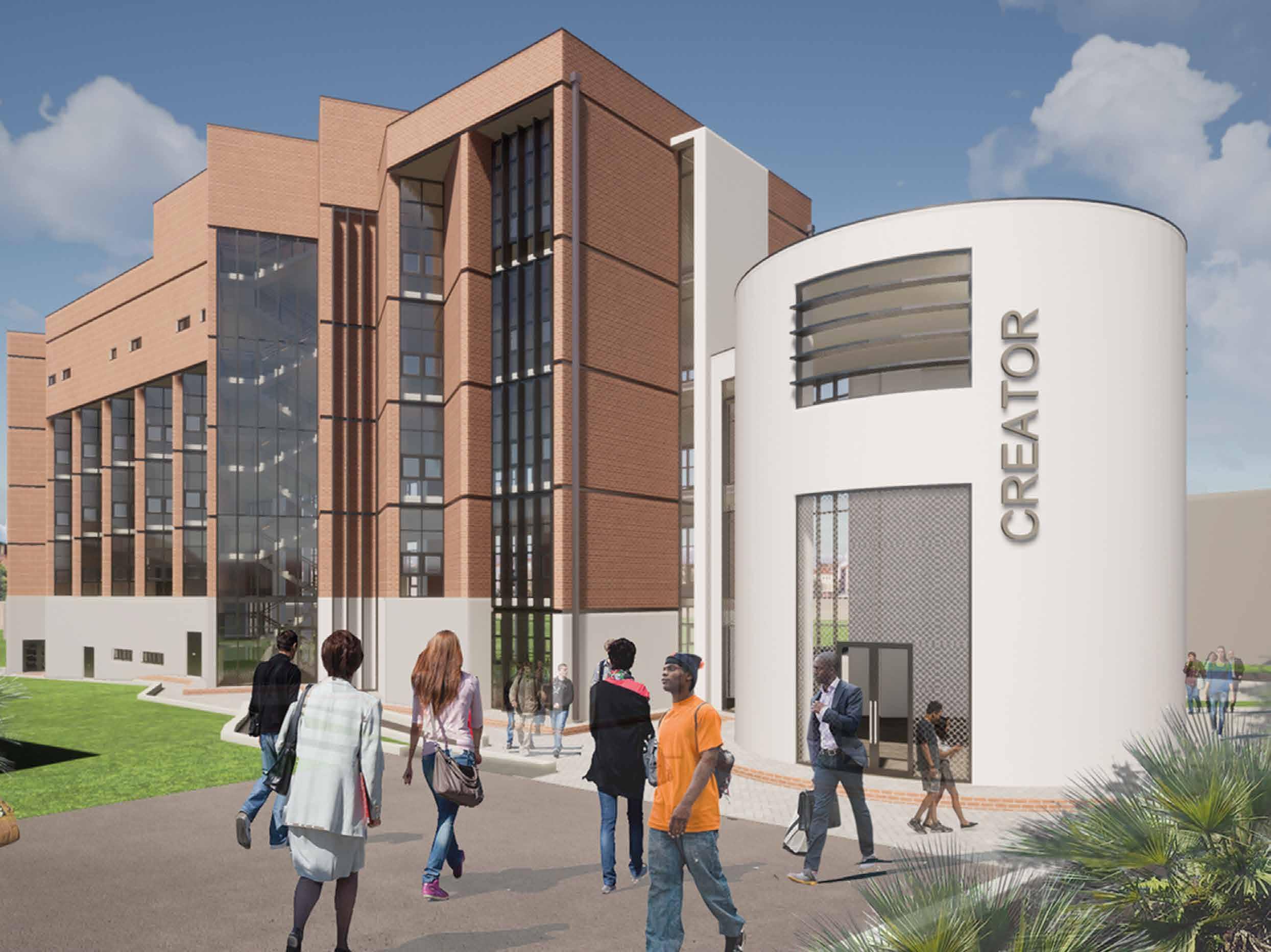
4 minute read
Estates
Throughout the last academic year, Estates in collaboration with research groups, education and other professional service teams has supported all manner of activities, both in the UK and overseas, ranging from travel safety and security, to multimillion-pound capital projects. Estates also provided support during the COVID-19 pandemic to ensure that LSTM’s global operations continued in a safe and secure manner whilst continuing to deliver to its programme of works.
Safety and Laboratory Management
Advertisement
The safety and laboratory management team continued to provide effective support across all LSTM activities both on campus and abroad, identifying and minimizing potential risks and safeguarding LSTM’s reputation.
In addition to providing pragmatic advice the team monitor the effectiveness of policy and process by undertaking a programme of monitoring inspections and audits. Dr David Simpkin, Head of Health and Biological Safety, undertook a safety audit of the MLW campus and filed stations in Malawi during July and continues to liaise with MLW Safety Officer and Management.
The Laboratory Management Team ensured that statutory testing was completed on time to support the safe working with pathogens within LSTM. At the beginning of the COVID pandemic a review of the Containment Laboratories was undertaken, and additional laboratories brought up the CL3 standard to be available for work on COVID related projects. Full training was given prior to allowing staff and students to work within the CL3 laboratories, and additional workers were training in response to the need for the COVID projects. Statutory risk assessments and notifications to HSE for work with biological agents (hazardous pathogens and GMOs) is undertaken by the Safety Team and LSTM Biological Safety Committee. The structure of the Health, Safety and Environment Committee is being reviewed to fit with the new committee structure, thus ensuring an effective riskbased approach to all LSTM activities. Work with biological agents (pathogens and GMOs) will continue to be overseen by the Biological Safety Committee. The Travel Team, working closely with the Travel Overseas Working Group Travel, and with support from specialist service providers, continues to oversee and monitor the risks associated with staff, student, consultant and volunteers travelling overseas on business. Environmental Management
LSTM, being fully committed to operating in an environmentally friendly and sustainable manner, has introduced a new Environmental Policy. To support the implementation of the Policy all refurbishment projects incorporate environmental and/ or energy improvements whenever practicable, such as replacement windows, improved roof insulation, LED lighting, improved BMS controls etc.
LSTM now recycles at source and the following demonstrates our continuous improvement in this area. • Oct 17-18 LSTM were recycling about 13% of our annual waste. • Oct 18-19 LSTM were recycling about 22% of our annual waste after we introduced dry mixed recycling euro bins for cardboard and paper only. • Oct 19-20 LSTM were recycling about 28% of our waste after introducing recycling at source (bins internally), dry mixed recycling for all waste i.e. cardboard-paper-plastics-cans etc. • March 20-Oct 20 LSTM recycled 30% of the total tonnage of waste for that period.
Energy is LSTM’s second highest area of spend. Over the last 6 months Estates worked closely with LSTM’s Procurement Team focusing on purchasing sustainable energy that represents best value for money via a flexible purchasing model. This switch has allowed LSTM to move from using brown energy to using certifiable green electric energy that is audited through the Carbon Trust.
Capital Works
As a result of the COVID-19 pandemic there has been a slowdown in the delivery of capital projects. In response to the pandemic, Estates worked closely with our clinical research teams and delivered two dedicated research centres in the Accelerator building to undertake clinical trials in relation to testing a COVID-19 vaccine. These were delivered to a very tight programme whilst ensuring that the stringent governance requirements of the trials were adhered to.
A planning application has been submitted to redevelop Pembroke House which will comprise the conversion and extension of the building to provide additional learning, meeting and lecture space to complement and enhance the current offer in other buildings within the LSTM campus.
The brief is to bring forward a high-quality development of the site which when completed will deliver:
An updated and more welcoming street frontage
A scheme that brings back an unused building back into use and enhances its original quality Additional learning, lecture and meeting space Malawi
The Clinical Research Excellence and Training Open Resource (CREATOR) building project is currentley at RIBA Stage 4b (Final Technical Design : Construction Packages) and the preparation of final design and construction packages for combined architecture, structural/civil engineering together with mechanical and electrical designs is being developed.
In additon to the CREATOR project the Estates team, in collaboration with the MLW team and the African project teams have designed, competitively tendered and awarded a design and build contract to a Malawian based main contractor to construct a new building to house research critical freezer archives.
This seperate project was identified as a critical business requirement and is being delivered alongside the CREATOR project whilst having minimal impact on the main CREATOR programme.










